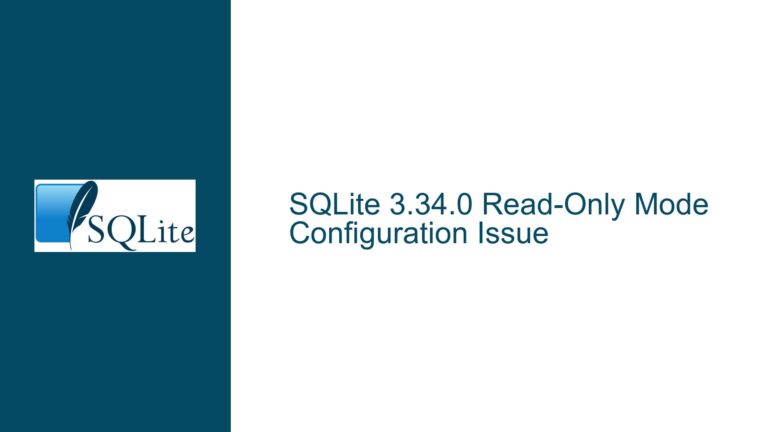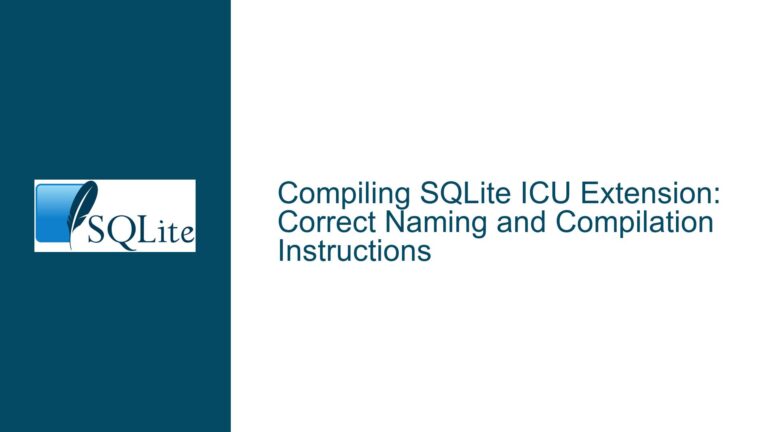Incorrect Line Endings in SQLite Shell.c on Windows Due to Git EOL Conversion
Mixed Line Endings in Shell.c Causing Debugging Issues on Windows The core issue revolves around the SQLite shell.c file ending up with mixed line endings, specifically \r\r\n, when built on a Windows machine using Git for repository management. This anomaly causes debugging issues, as the line endings do not match the expected format, leading to…









